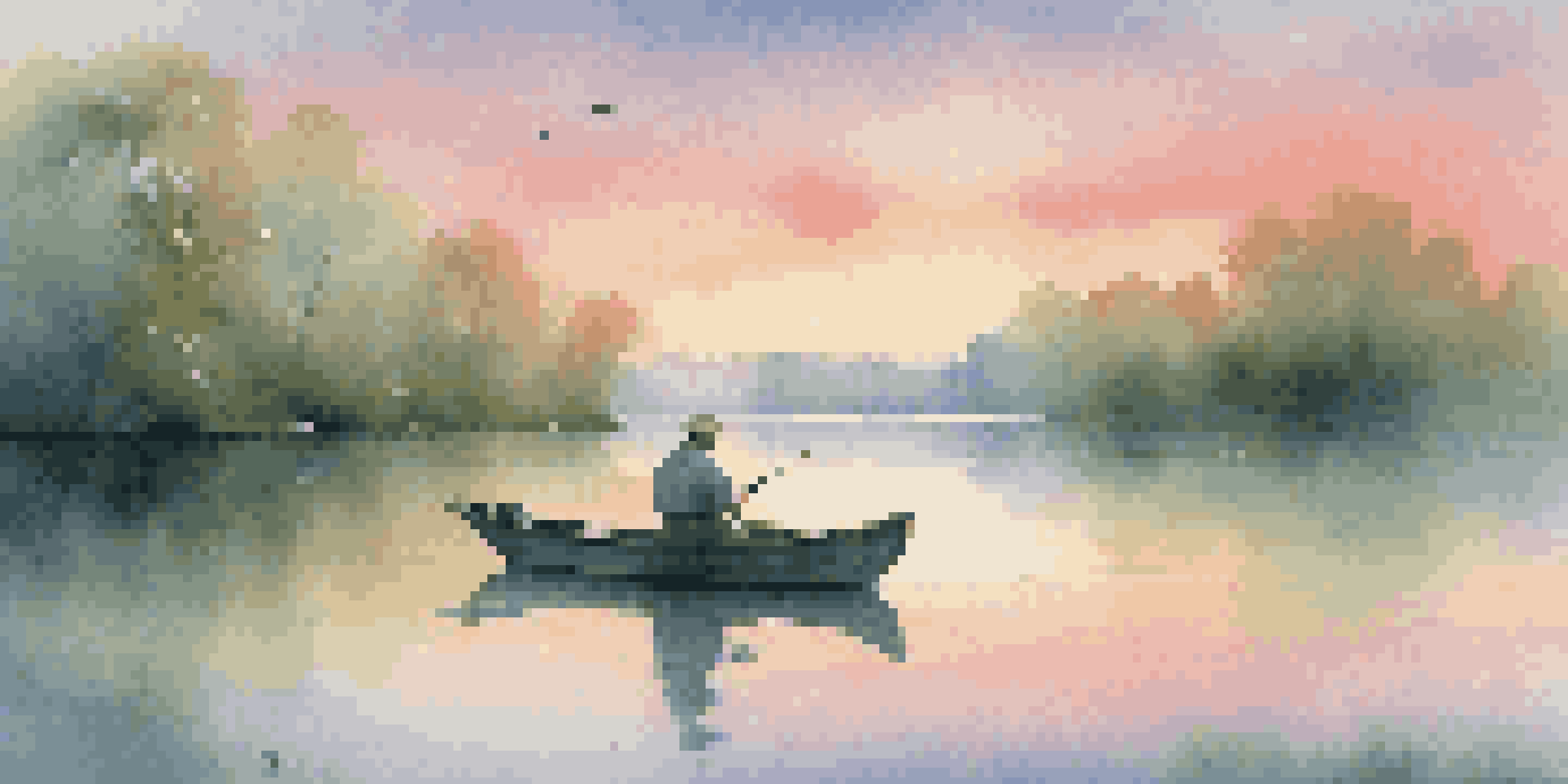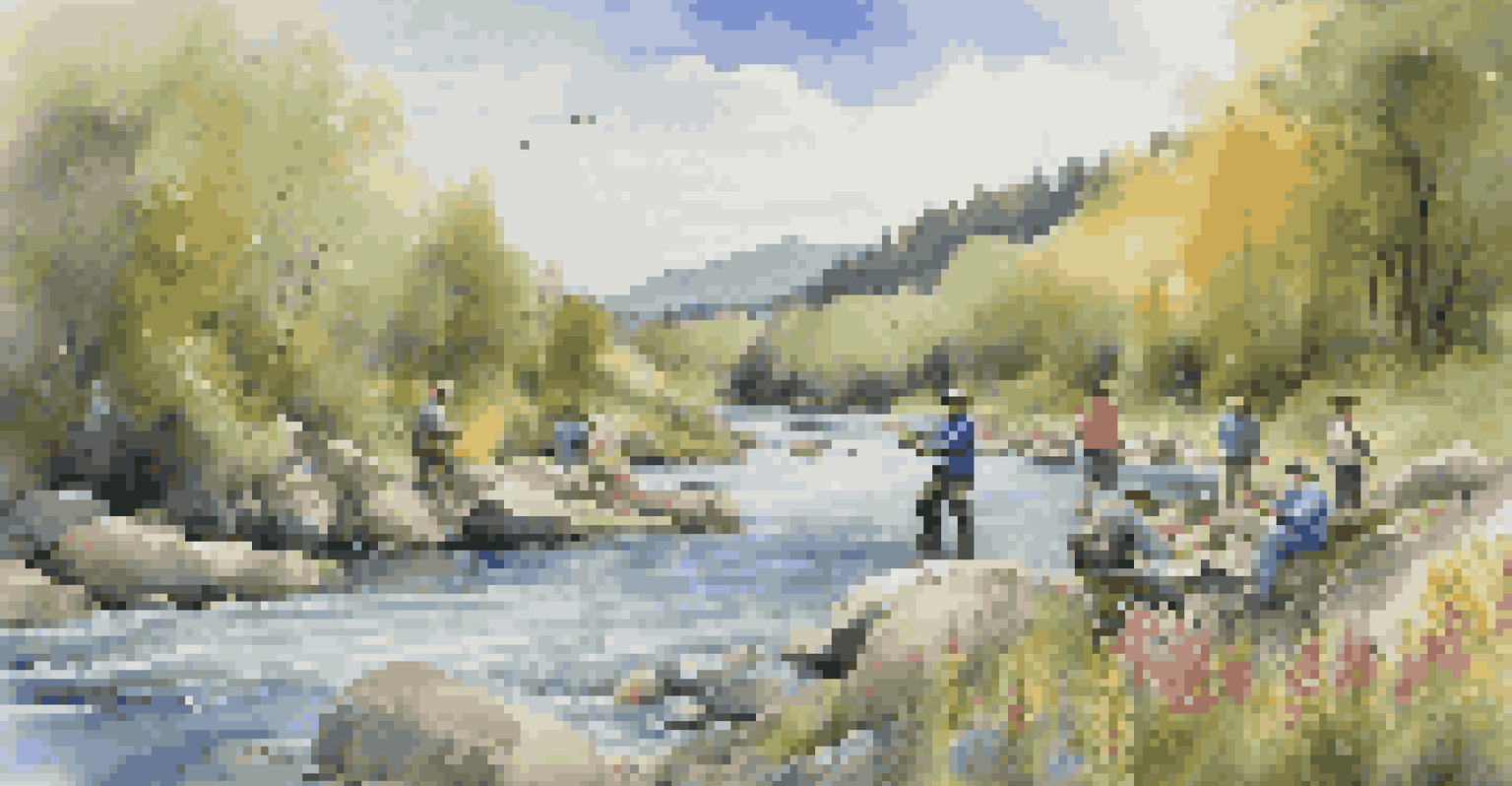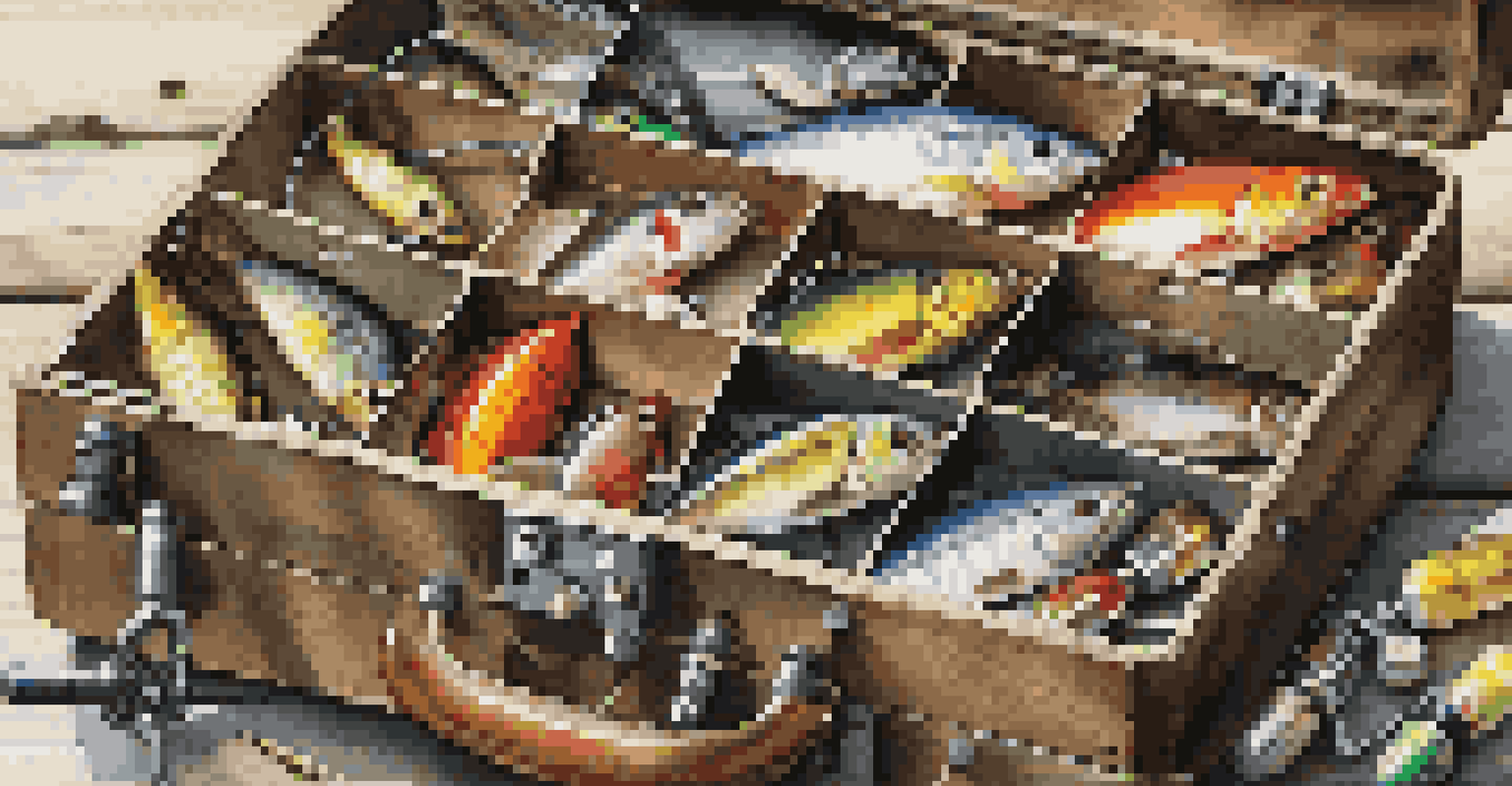Fishing Challenges: Overcoming Common Obstacles for Success

Understanding the Weather: A Key Factor in Fishing Success
Weather can make or break a fishing trip, influencing fish behavior and activity. For instance, overcast days often lead to more successful catches, as fish feel safer near the surface. Conversely, bright sunny days might push fish to deeper waters, making them harder to catch.
The fishing was good; it was the catching that was bad.
Being aware of weather patterns can help you plan your outings more effectively. Tools like weather apps or local forecasts can provide insights on temperature, wind, and precipitation. Taking this into account can maximize your chances of a fruitful day on the water.
Additionally, don’t let unexpected weather changes deter you. Instead, adapt your techniques; for example, if rain rolls in, try using brighter lures that stand out against murky waters. Flexibility is key to overcoming this common fishing challenge.
Gear Selection: Choosing the Right Equipment for Success
Having the right gear is crucial when it comes to fishing. Consider what type of fishing you’ll be doing—freshwater, saltwater, or fly fishing—and select rods, reels, and lures accordingly. Each type of fishing has its unique requirements, and using unsuitable equipment can lead to frustration.

For example, trying to catch bass with a fly rod might not yield the best results, while using a sturdy rod for surf fishing can help you combat larger fish. Researching your target species and their habits can guide you in making informed gear choices.
Weather Affects Fishing Success
Understanding weather patterns can significantly enhance your fishing experience by influencing fish behavior and activity.
Don’t forget about maintenance, too. Regularly checking and cleaning your gear can prevent mishaps that might ruin your fishing experience. Proper care ensures that your equipment is ready to perform when you are, reducing obstacles during your fishing adventures.
Location, Location, Location: Finding the Best Fishing Spots
Not all fishing spots are created equal, and finding the right location can be a game-changer. Research local lakes, rivers, or coastal areas known for good fishing conditions. Many anglers find success by visiting sites that are less crowded, where fish can be more plentiful and less wary.
Fishing is not an escape from life, but often a deeper immersion into it.
Consider using online forums or social media groups dedicated to fishing in your area. These communities often share valuable insights about hotspot locations and seasonal trends. Engaging with fellow anglers can help you discover hidden gems that may not be widely advertised.
Moreover, don’t hesitate to explore new areas. Sometimes, the best catches come from unexpected places. Keep an open mind and be willing to venture off the beaten path to uncover your next favorite fishing spot.
Timing is Everything: Fishing at the Right Times
When it comes to fishing, timing can significantly impact your success. Many experienced anglers swear by the early morning or late evening as prime times, as fish tend to be more active during these hours. Understanding the feeding patterns of your target species can give you a leg up.
Moon phases also play a role; for example, fish are often more active during a full moon. Observing these natural rhythms allows you to plan your fishing trips more strategically. This knowledge transforms fishing from a mere hobby into a more calculated pursuit.
Choose the Right Fishing Gear
Selecting appropriate equipment based on the type of fishing you’re doing is essential to avoid frustration and improve your chances of a successful catch.
Of course, being flexible with your schedule can also lead to unexpected rewards. If you find yourself with a free afternoon, don’t hesitate to grab your gear and head out. Sometimes, spontaneity leads to the best fishing experiences.
Bait and Lures: Selecting the Right Options for Success
Choosing the right bait or lure can be a pivotal decision in your fishing strategy. Live bait, like worms or minnows, often attracts fish more effectively than artificial lures. However, lures can be just as successful if you know how to use them correctly.
For instance, matching the color and size of your lure to the fish’s natural prey can increase your chances of a bite. Experimenting with different types can help you understand what works best for the species you’re targeting. Don’t be afraid to switch things up if the fish aren’t biting.
Also, consider the water conditions. In murky waters, brighter lures can be more effective, while natural colors may work better in clear waters. By adjusting your bait and lure choices to match the environment, you can overcome one of the most common fishing obstacles.
Patience and Persistence: Key Traits for Successful Anglers
Fishing requires a healthy dose of patience and persistence, qualities that can be tough to cultivate. It’s easy to get discouraged when the fish aren’t biting, but remember that even seasoned anglers have off days. Embracing the process and enjoying the experience can make all the difference.
Think of fishing as a journey rather than just a destination. The time spent outdoors, connecting with nature, and sharing stories with fellow anglers can be just as rewarding as the catch itself. This mindset shift can help you navigate the challenges you may face.
Patience is Key in Fishing
Cultivating patience and persistence can transform your fishing trips into rewarding experiences, even when the fish aren’t biting.
Moreover, persistence can lead to breakthroughs. If one spot isn’t yielding results, don’t hesitate to try a different technique or location. Each fishing trip provides an opportunity to learn and grow, making you a more skilled angler in the long run.
Safety First: Navigating Common Risks While Fishing
Safety should always be a top priority when fishing, as the outdoors can present various risks. Whether you’re wading in rivers or boating on lakes, being aware of your surroundings is essential. Always wear a life jacket when on the water and be cautious of changing weather conditions.
Additionally, understanding first-aid techniques for common fishing injuries, like hooks or cuts, can prepare you for unexpected situations. Carrying a well-stocked first-aid kit ensures you're ready for anything, allowing you to focus on fishing rather than worrying about safety.

Lastly, don’t forget about environmental safety. Follow local regulations regarding catch limits and waste disposal to protect the ecosystems we enjoy. By being a responsible angler, you contribute to the future of fishing for generations to come.